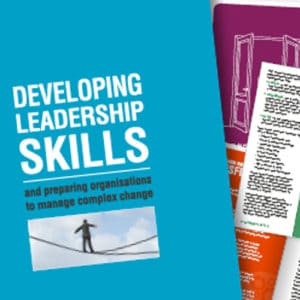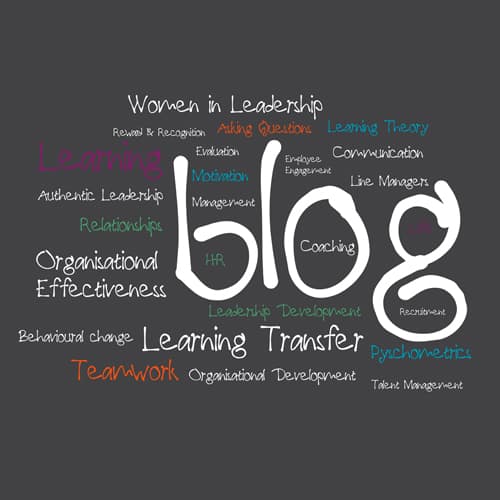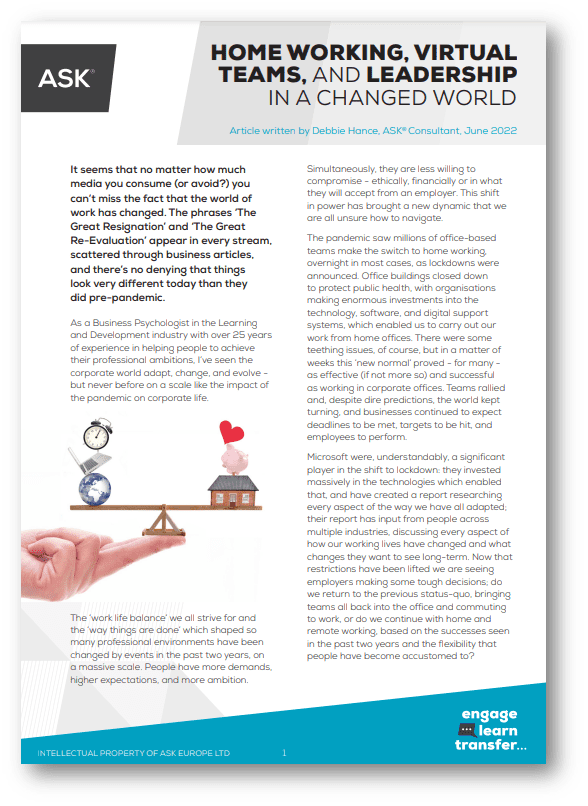Neuroplasticity in learning
Creating the best workforce
As learning professionals, passionate about developing your organisation’s people to create the best workforce you can have, encompassing the best stills and traits of the team as a whole, we know that neuroplasticity is the premise of everything we are and do.
Whilst it’s true that many of our traits and behaviours are innate – by which I mean that we are born a certain way, and respond in alignment with our natural traits – we also have a lot of control over the shaping and reprogramming of our brains; not only can we learn new information, we can also reshape our brains, physically changing the neural pathways which determine our behaviours and responses.
Have you ever moved a clock from one part of a room to another? How long does it take for you to stops looking at the old position and start looking at the new one?
This neuroplasticity is one of the most powerful tools in the armoury of any training and learning professional – the ability to imprint lasting changes where new information quite literally changes the makeup of a person’s brain, retaining and responding to this new knowledge.
A lifelong process
It sounds like magic – but it is actually one of the most complex processes our bodies are capable of. A lifelong reshaping and development of our brains, where some areas are strengthened, and others are culled or pruned as they become less useful and less active. Described another way, it’s like a computer defragmenting – sorting which files are still useful, filing new data in the cleared spaces, and re-routing new paths to access important information.
The more actively we process new information – for example, layering inputs to cement the knowledge – the more effectively we retain and make use of that new knowledge. This is why our training is never simply lecturing or handing out notes – it’s immersive, multi-faceted and experiential; it’s also why we press the importance of follow-up beyond the end of your learning course, actioning the new behaviours in your role and embedding the training into your organisation.
Information presented in one way can only be retained one way – but when we layer input from a range of senses, that attaches layers of association to the new information within our minds – and our brains have to store that information with each of those associations, creating a more complex neurological pathway. It’s like stacking layers of cake; one input is a miniature cupcake – great to have, but not going to go far; additional layers of input make a showstopper – a giant wedding cake, towers of related information stacked into one rainbow of new knowledge which can reform how you behave and respond to scenarios which once felt overwhelming – but which you’ve been trained to understand and manage.
Leadership – whether of a small team or of a global network of businesses – is as multi-faceted as the teams you’re leading – and though we hear a great many clichés about how some are born to lead, in truth the skills and traits of great leaders all require adaptability, growth and embracing change and development. All of these rely on neuroplasticity, and on understanding how we can develop our brain, our understanding, and our desire for being the best that we can be.

With that ambition in mind, we would love to speak to you further about the needs your organisation may have for developing habits and behaviours which benefit not only the individual but the team which they are leading.
Call 01234 757575 or email hello@askeurope.com to find out more about ASK Europe’s learning programmes.



